The Ukrainian authorities failed to extend the accreditation of photojournalist Anton Skyba, who has worked with the Canadian newspaper The Globe and Mail since 2014. The country’s special services demanded that he undergo a lie detector test, accusing him of having a Russian passport and doubting the conformity of his work to the ‘national interests’ of the country.
The newspaper writes about this in the material on the first page of its latest issue.
Anton Skyba, 34, worked as a freelance and contract photographer, translator, and reporter with half a dozen Globe journalists in Ukraine. This year he was a finalist for a National Newspaper Award for his depiction of a girl in a pink hat standing in front of an apartment blown up by a missile on the first night of the Russian invasion in February 2022.
It was a familiar scene for him.
Mr. Skyba has reported on the course of Russian aggression against Ukraine since 2015. But this year, on May 1, Mr. Skyba‘s press card expired, and the authorities have not yet issued him a new one, preventing The Globe from covering the war, including Ukraine’s long-awaited counteroffensive.
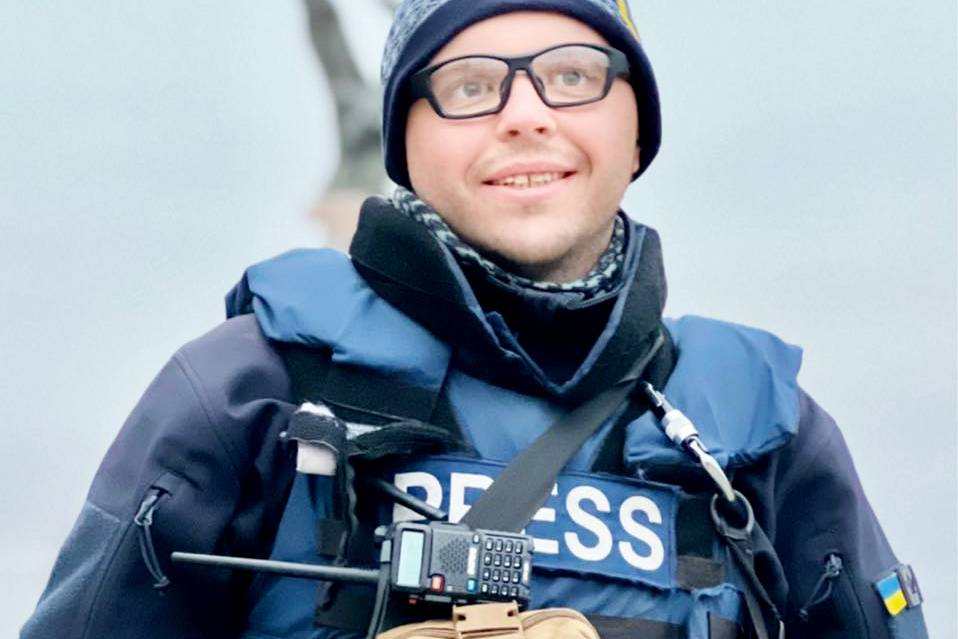
Instead, Mr. Skyba was invited to appear for two interviews at the Security Service of Ukraine (SSU). He was asked detailed questions about his origin as a native of the ‘temporarily occupied territories’ in eastern Ukraine. He was born in the part of Donbas, which was captured by Russian-backed ‘separatists’ in 2014. Mr. Skyba‘s parents, who still live there, received Russian passports: Russia has promised to treat those with Ukrainian citizenship as ‘foreigners’ from 2024.
But Mr. Skyba has an entirely different relationship with the occupiers. In 2014, he was kidnapped by ‘separatists’ while working for CNN. The journalist was taken to the former SSU building in Donetsk, where he was beaten, interrogated, and locked in the basement with a concussion and bruises under his eyes. He was kept there for four days and then released.
Almost ten years later, on April 28, 2023, with three days left before the media accreditation, Mr. Skyba was summoned to the SSU. Inside, he was taken to a room with dusty pink walls, Soviet furniture, and bars on the windows. The lieutenant colonel asked him about his birthplace, education, and parents. They are in Yenakiyeve, a coal-mining and steel-making center between Donetsk and Luhansk that is best known as the birthplace of Viktor Yanukovych, the former president of Ukraine who was convicted in absentia of treason in 2019.
The city became part of the separatist Donetsk People’s Republic (DPR) in 2014. During that chaotic time, Mr. Skyba offered the editor of a Russian magazine help in finding a driver in exchange for accreditation with that publication, with which he would drive through roadblocks in the region. But Skyba says he “never sent a single byte of information to the Russian media as an author or freelancer,” and he was “never paid by the Russian media.”
Still, he acknowledged the circumstance when speaking to the SSU in April about his past work in the region. At the end of the conversation, the lieutenant colonel noted that he had no objections to the accreditation of Mr. Skyba. “He told me, ‘Don’t worry,'” Mr. Skyba recalled.
Thousands of journalists have arrived in Ukraine since last year’s Russian invasion, covering the war from the front lines, hospital wards, and devastated neighborhoods. Ukraine has proven to be highly effective in attracting foreign support. Last year, a Pew Research Center poll showed that Ukrainian President Volodymyr Zelenskyy is the most trusted leader in the United States. Mr. Zelenskyy himself wrote a letter to the family of American journalist Brent Renaud after his murder last year. At least 15 journalists have been killed since the 2022 invasion.
But as the war turned into a brutal competition for attrition and destruction, Ukraine took a stricter stance on journalists – revoking the credentials of journalists from The New York Times and NBC News (later accreditation was restored). The Times reported on Ukraine’s use of cluster bombs. The NBC journalist entered Crimea from Moscow, which is a violation of Ukrainian legislation. Ukraine had suspended journalists from CNN, Sky News, and two Ukrainian publications, Suspilne, and Hromadske, who were reporting from one of the cities before the authorities allowed such activities.
Ukraine prohibits journalists from covering numerous aspects of the war, including the location of military facilities, the number of personnel, details of hostilities or troop deployments, information about downed aircraft or ships, and content that is considered “propaganda or justification for Russia’s large-scale armed aggression against Ukraine.”
Restrictions have increased. In March, after new rules barred journalists from dozens of “red zone” communities and required press officers to escort journalists into the “yellow zone,” the international NGO Reporters Without Borders called for increased access.
” We are in a rather difficult situation because we cannot do our work properly, but our work is essential for the country in an emergency,” said Kateryna Serhatskova, a co-founder of the 24.02 Fund, which is managed by Ukrainians and equips journalists for reports in war zones. (Mr. Skyba is a consultant and trainer of the foundation).
Ukrainian officials cited the need to protect the safety of journalists and stated that they needed to harmonize their policy with that of the European Union. The Globe’s requests for comment from the president’s administration and the SSU went unanswered.
The Embassy of Ukraine in Ottawa said the vetting process is impartial and considers only ‘issues of national security.’ “The security clearance is part of the established practice of media accreditation in war, and we believe this is clear,” the embassy replied.
The new policy in April forced all accreditations to be renewed, making them valid for only six months. Globe correspondents have received new documents. But at the same time, Ukrainian officials continue to vet journalists whose loyalty they may question.
At least 10 Ukrainian journalists had problems obtaining new accreditation, according to Ms. Serhatskova.
“What they all have in common is that they worked in the occupied territories or were in Russia at some point after 2014,” she said. “They were interrogated, although it is obvious they were reporting from there.”
Three weeks after the first meeting with the SSU representatives, Mr. Skyba was called back for an interview. This time, the tone was more aggressive: the second interlocutor claimed problems with his tax return and informed Mr. Skyba that he had traveled to Belarus in 2021 and had a Russian passport. Both were a surprise for him: he has not been to Belarus since 2016, he has not been to Russia since he was 18, and he does not have a Russian passport.
“I told them that this is nonsense,” says Mr. Skyba.
SSU officials said they found no fault with his reporting. “We do not see you as an enemy,” he was told. “But we are not sure that your work corresponds to the national interests of Ukraine.”
It was a blow to Mr. Skyba, who struggled to respond to the accusations, which he considered not just lies but personal insults. He recalled his previous interrogation in Donetsk. According to him, the separatists “accused me of spying for the benefit of the Kyiv junta.” “And now my country considers me a Russian agent.”
The SSU also asked him to take a lie detector test. Such tests are common in Ukraine, where they are admissible in court. However, Mr. Skyba refused. “I don’t understand what kind of journalist would do that,” he said. Nor does he wish to undergo another round of intense interrogation. For him, “the lie detector is about the same level as the torture I suffered in Donetsk.”
Mr. Skyba has documents that confirm his words. According to the State Border Service of Ukraine, received this week, he has not been to Belarus recently.
But in a letter sent this week to the editor-in-chief of The Globe and Mail, David Walmsley, the press service of the Presidential Office said that certain aspects of Mr. Skyba‘s past remain “unclear.” He was asked a number of questions, such as: Did Mr. Skyba and his relatives receive Russian citizenship?; Why he traveled to Belarus between 2019 and 2021; and Does he maintain ties with representatives of the separatist republics of Donetsk and Luhansk? If these issues cannot be clarified, the Office asks the publication to “consider the possibility of cooperation with another fixer so that the work of media representatives in Ukraine does not stop.”

Fixers are important local participants in newsgathering activities abroad, helping with translation, logistics, and planning.
In response, Mr. Walmsley wrote to the Office that he was deeply concerned about “an apparent attempt to pressure The Globe and Mail to change the composition of the publication’s team in Ukraine.” He added: “Mr. Skyba helped us bring award-winning coverage of the Russian invasion to Canadian readers, reporting that undoubtedly influenced the Canadian government’s policy toward Ukraine.”
However, Mr. Skyba‘s lack of a permit to work in the mass media has already caused serious thought. After being kidnapped in Donetsk, he received an invitation to move to another place in Europe. A similar offer came a few days before last year’s invasion. “My answer has always been no. I want to stay in Ukraine and report about Ukraine because it is my country,” he said.
However, if he is denied accreditation, “that would mean I’m not in the profession,” he said. Without this document, “it is impossible to engage in journalism in Ukraine because all journalism in Ukraine is about the war.”

 THE NATIONAL UNION OF
JOURNALISTS OF UKRAINE
THE NATIONAL UNION OF
JOURNALISTS OF UKRAINE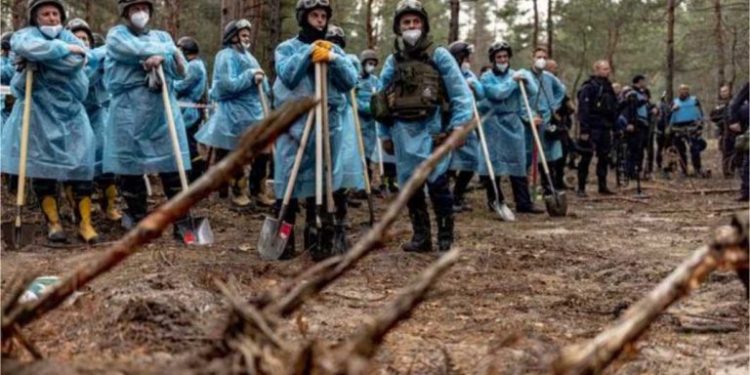
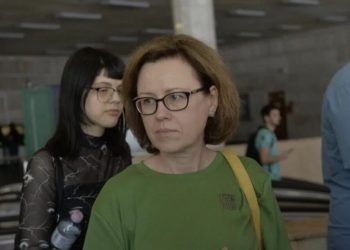
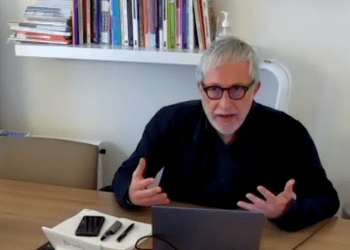
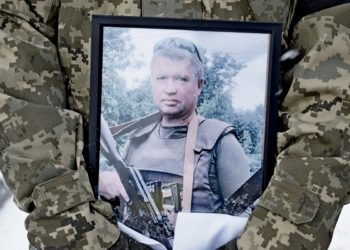













Discussion about this post